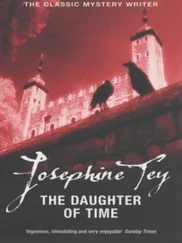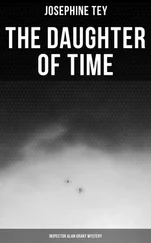He was still turning the small question over in his mind when he fell asleep. And it was only in the morning that it occurred to him that he had hated the closed window because it made the room stuffy and not because it was closed.
He washed in the two pints of tepid water that Katie-Ann brought him and went downstairs rejoicing. He felt on top of the world. He ate the Glasgow bread, still another day older this morning, and the Edinburgh oatcakes, and the Dundee jam, and the Canadian butter, together with some sausages from the English midlands, and enjoyed them. Having given up his expectation of primitive elegance, he was prepared to accept primitive existence.
He was gratified to find that in spite of cold wind and wet weather and thinly covered hard beds his rheumatism had entirely gone, being no longer needed by his subconscious to provide an alibi. The wind was still howling in the chimney and the water spouting up from the breakwater, but the rain had stopped. He put on his Burberry and tacked round the harbour front to the shop. There were only two places of business in the row of houses that fringed the harbour: a post-office and a provision merchant. These two between them supplied the island with all that it needed. The post-office was also a newsagent; and the provision merchant was a combination of grocer, ironmonger, chemist, draper, shoe-shop, tobacconist, china-merchant, and ship’s chandler. Bolts of sprigged cotton for curtains or dresses lay on shelves alongside the biscuit tins, and hams hung from the roof among strings of locknit undergarments. Today, Grant noticed, there was also a large wooden tray of tuppenny buns baked, if the paper round the queen cakes was to be believed, in Oban. They were crummy and depressed-looking, as if they had been tumbled about in one of the cardboard cartons that were such an indispensable part of island life, and they smelled very faintly of paraffin, but he supposed that they made a change from the Glasgow bread.
In the shop were several men from the fishing-boats in the harbour and a little round man in a black raincoat who could be nothing but a priest. This was a fortunate thing. Even the Presbyterian third, he felt, could hardly hold against him a fortuitous meeting in a public store. He edged in beside His Reverence and waited with him while the fishermen were being served. After that it was plain sailing. The priest ‘picked him up’ and he had five witnesses to it. Moreover, Father Heslop deftly included the proprietor, one Duncan Tavish, in the conversation, and, from the fact that Father Heslop called him Mr Tavish and not Duncan, Grant deduced that the proprietor was not one of his flock. So he was very happily parcelled out among the islanders over the paraffiny buns and the margarine, and there would be no internecine war over the possession of his person.
He went out into the gale with Father Heslop and strolled home with him. Or rather they beat up against the wind together, staggering a few steps forward at a time, and shouting remarks to each other above the noise of their flapping garments. Grant had the advantage of his companion in that he wore no hat, but Father Heslop was not only lower on the ground but had a figure ideally streamlined for life in a gale. He had no angles anywhere.
It was good to go in from the blast to a warm turf fire and silence.
‘Morag!’ called Father Heslop, into the further end of the house, ‘Some tea for me and my friend here. And a scone maybe, like a good girl.’
But Morag had not baked, any more than Katie-Ann had. They were given Marie biscuits, a little soft in the island dampness. But the tea was wonderful.
Because he knew that he was an object of curiosity to Father Heslop, as he was to everyone on the island, he said that he had been fishing with relations in Scotland, but had to stop owing to a bad shoulder. And because he had been bitten with the idea of the Islands, and more especially with the Singing Sands on Cladda, he had taken the chance of coming to see them; a chance he might never have presented to him again. He supposed that Father Heslop was well acquainted with the sands?
Oh, yes, of course Father Heslop knew the sands. He had been fifteen years on the island. They were on the west side of the island, facing the Atlantic. It was no distance across the island. Grant could walk there this afternoon.
‘I would rather wait for fine weather. It would be better to see them in sunlight, wouldn’t it?’
‘At this time of year you might wait for weeks before you’d see them in sunlight.’
‘I thought spring came early to the Islands?’
‘Oh, I think, myself, that’s just an idea of the people who write books about them. This is my sixteenth spring on Cladda, and I have yet to catch one here before its time. The spring’s an Islander too,’ he added with a little smile.
They talked of the weather, the winter gales (which made today, according to Father Heslop, a thing of zephyrs), the penetrating damp, the occasionally idyllic summer days.
Why had a place of so few attractions captured the imagination of so many people, Grant wanted to know.
Well, partly it was that they saw it only at high summer, and partly it was that those who came and were disappointed, were reluctant to admit their disappointment either to themselves or the friends they had left behind. They compensated themselves by talking big. But it was Father Heslop’s own theory that most people who came were unconsciously running away from life, and they found what their imaginations prepared for them. Through their eyes the Islands were beautiful.
Grant thought this over, and then asked him if he had ever known a Charles Martin, who had been interested in singing sands.
No; Father Heslop had never met a Charles Martin, as far as he could remember. Had he come to Cladda?
Grant did not know.
He went out into the blast, and was blown back to the hotel at an undignified trot, teetering on his toes like an elderly toper. The bare lobby at the hotel smelled of unidentifiable hot food and sang like a choir as the wind came shrieking in under the outside door. But they had managed a fire that looked like a fire, in the sitting-room. To the scream of wind in the passage and the yowling of wind in the chimney he ate beef from South America, carrots tinned in Lincolnshire, potatoes grown in Moray, milk pudding packaged in North London, and fruit bottled in the Vale of Evesham. Now that he was no longer conditioned to magic, he filled his stomach thankfully with what was put in front of him. If Cladda had denied him spiritual joy it had provided him with a fine physical appetite.
‘Don’t you ever bake scones, Katie-Ann?’ he said, when he was arranging the time of his high tea.
‘Is it scones you’ll be wanting?’ she said surprised. ‘Indeed, yes, I’ll bake you some. But we have baker’s cakes for your tea. And biscuits, and ginger-snaps. Would you rather be having scones than them?’
Remembering the ‘baker’s cakes’ Grant said enthusiastically that he would, he would indeed.
‘Well, then,’ she said kindly, ‘of course, I’ll bake you a scone.’
For an hour he walked; along a flat grey road through a flat grey desolation. To his right, distant in the mist, was a hill; the only visible height. The whole thing was as inspiring as the fens on a wet January day. Every now and then the wind on his left flank would send him spinning sideways off the road altogether, and he struggled back half amused, half irritated. At long distances, odd cottages lay cowering close to the earth, blind and limpet-like, without any sign of human habitation. Some had stones slung from the roof by ropes to weight the structure against the wind’s importunity. None of them had fence, outhouse, garden or bush. It was living at its most primitive; inside four walls; everything under hatches and battened down.
Читать дальше












